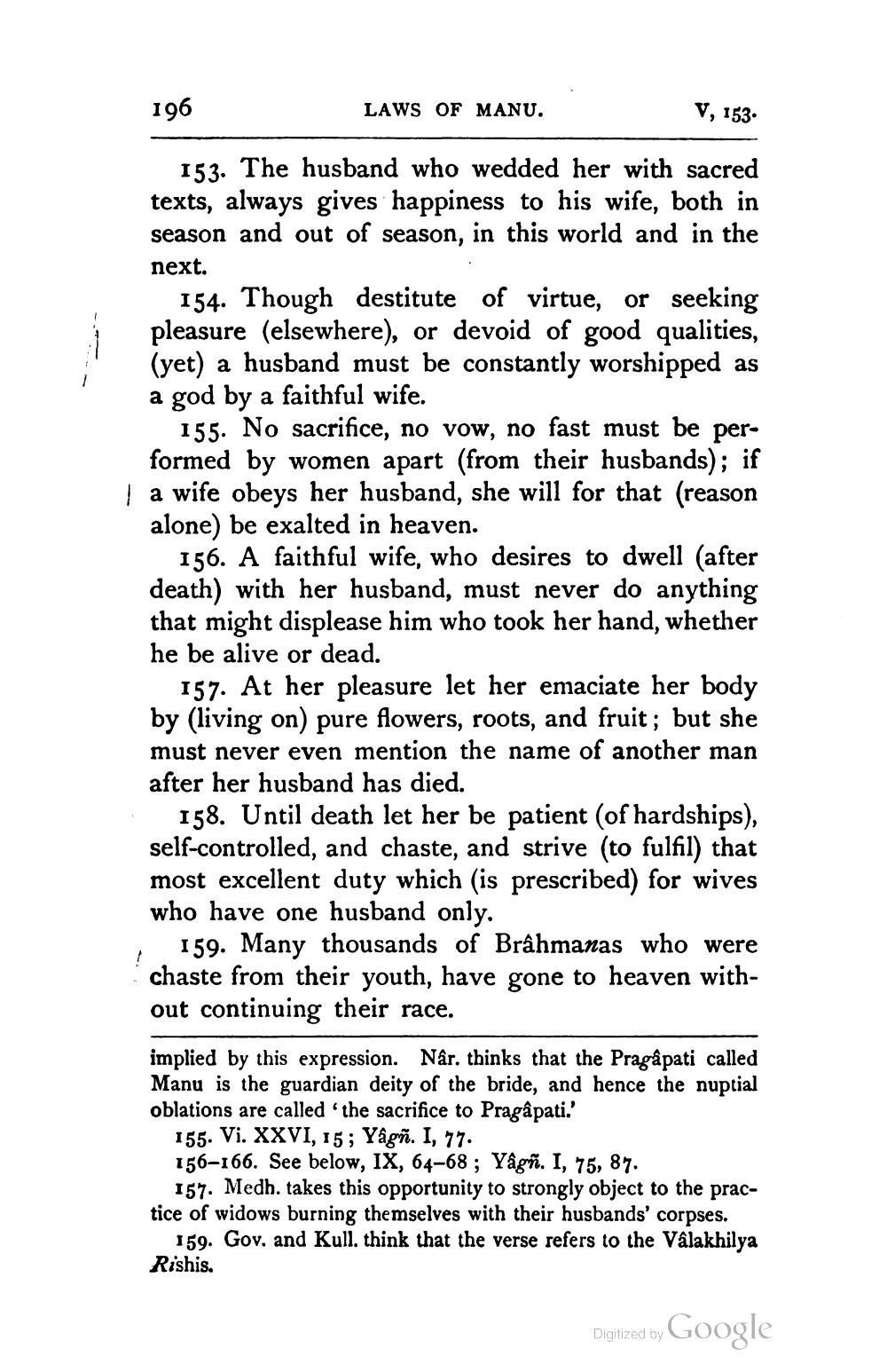________________
196
LAWS OF MANU.
V, 153.
153. The husband who wedded her with sacred texts, always gives happiness to his wife, both in season and out of season, in this world and in the next.
154. Though destitute of virtue, or seeking pleasure (elsewhere), or devoid of good qualities, (yet) a husband must be constantly worshipped as a god by a faithful wife.
155. No sacrifice, no vow, no fast must be performed by women apart (from their husbands); if | a wife obeys her husband, she will for that (reason alone) be exalted in heaven.
156. A faithful wife, who desires to dwell (after death) with her husband, must never do anything that might displease him who took her hand, whether he be alive or dead.
157. At her pleasure let her emaciate her body by (living on) pure flowers, roots, and fruit; but she must never even mention the name of another man after her husband has died.
158. Until death let her be patient (of hardships), self-controlled, and chaste, and strive (to fulfil) that most excellent duty which (is prescribed) for wives who have one husband only.
159. Many thousands of Brâhmanas who were chaste from their youth, have gone to heaven without continuing their race.
implied by this expression. Når. thinks that the Pragâpati called Manu is the guardian deity of the bride, and hence the nuptial oblations are called the sacrifice to Pragâpati.'
155. Vi. XXVI, 15; Yâgñ. I, 77. 156–166. See below, IX, 64-68 ; Yågñ. I, 75, 87.
157. Medh. takes this opportunity to strongly object to the practice of widows burning themselves with their husbands' corpses.
159. Gov, and Kull. think that the verse refers to the Vâlakhilya Rishis.
Digitized by Google




